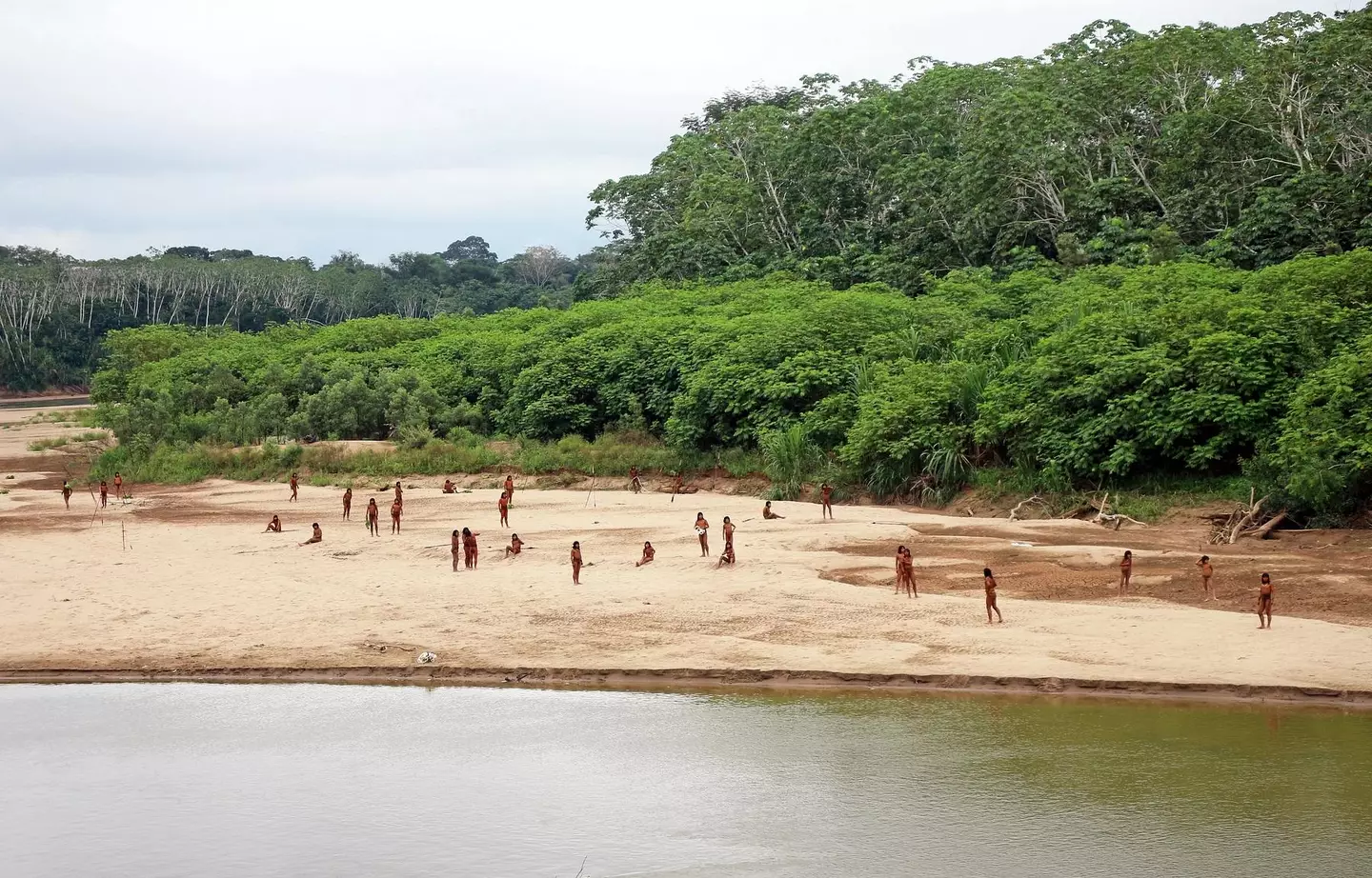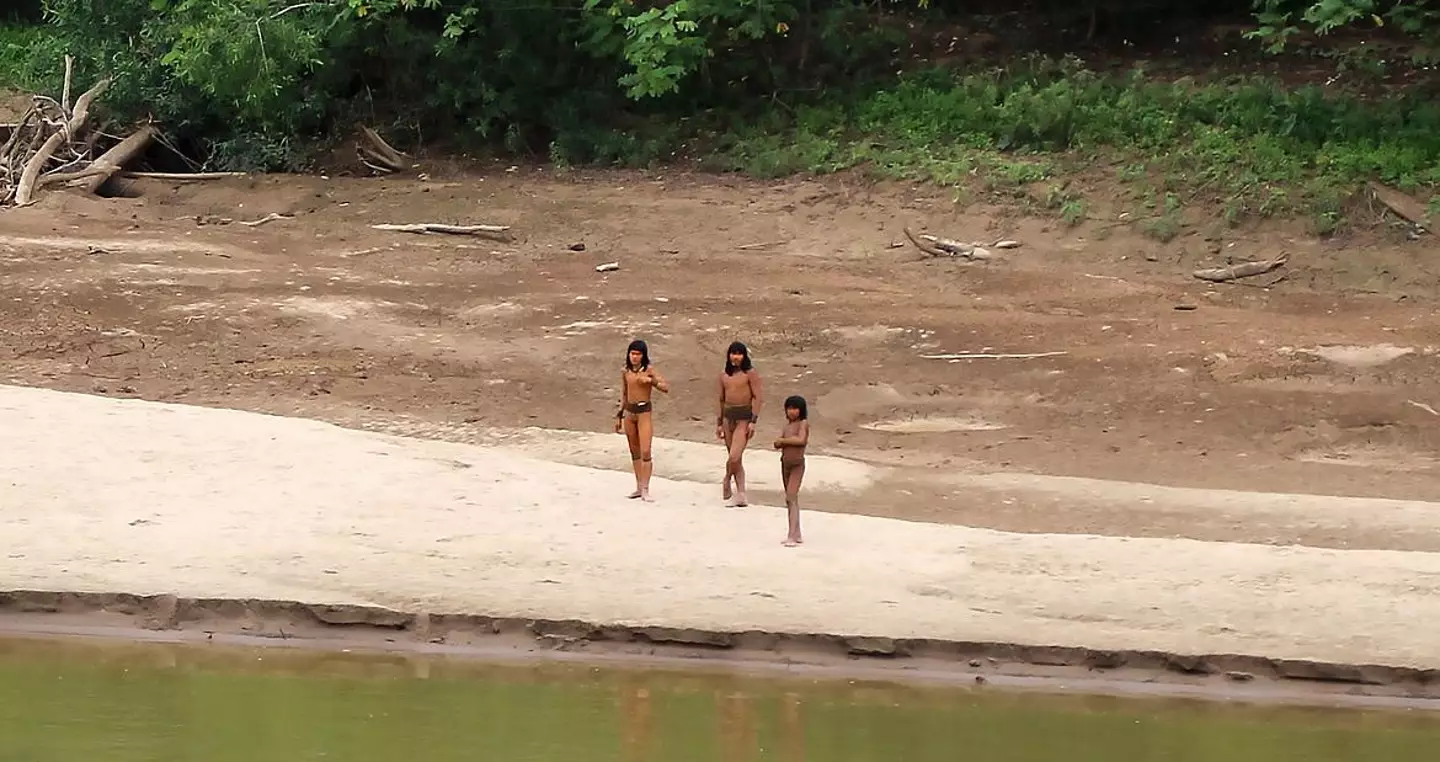Photos show uncontacted communities of people living in the Peruvian Amazon
An uncontacted community of people is living dangerously close to logging areas in the Peruvian Amazon.
The Mashco Piro people are an uncontacted tribe who live in remote parts of Peru near to the Brazilian border.
While there are laws in place in Peru which set up reserves for indigenous communities, logging licences are still granted in the rainforest.
In 2022, Peruvian authorities pushed a bill aimed at stopping the creation of new reservations and even dismantling existing ones, prompting outrage from indigenous rights activists.
Now, members of the reclusive Mashco Piro community have been spotted just a few miles from land which has been granted licensing for loggers to begin operations.
Despite protections for indigenous communities being enshrined in both national and international accords, logging licences continue to be granted.
Loggers often do not report any sightings of indigenous people for fear of their operation being shut down.

The group was spotted in the Peruvian Amazon. (Survival International)
And the images indicate that there is a community of Mashco Piro, who are in contact with other tribes in the area, living near to a logging site.
The pictures were taken at the end of June in the Madre de Dios region close to the border between Peru and Brazil, and released by advocacy group Survival International.
Around 50 Mashco Piro were seen near to a village of a contacted tribe the Yine, and another group of 17 Mashco Piro were spotted near the village of Puerto Nuevo, according to Survival International.
Survival International director Caroline Pearce said: “These incredible images show that a large number of isolated Mashco Piro live alone a few kilometres from where the loggers are about to start their operations.

The group was spotted dangerously close to land granted to loggers. (Survival International)
“Indeed one logging company, Canales Tahuamanu, is already at work inside Mashco Piro territory, which the Mashco Piro have made clear they oppose.”
She added: “This is a humanitarian disaster in the making. It’s absolutely vital that the loggers are thrown out and the Mashco Piro’s territory is properly protected at last.”
The risk to indigenous people from loggers is not just confined to the destruction of their homes.
Alfredo Vargas Pio, head of indigenous rights group Fenamad, said: “The logging workers could bring in new diseases which would wipe out the Mashco Piro, and there’s also a risk of violence on either side, so it is very important the territorial rights of the Mashco Piro are recognised and protected in law.”





